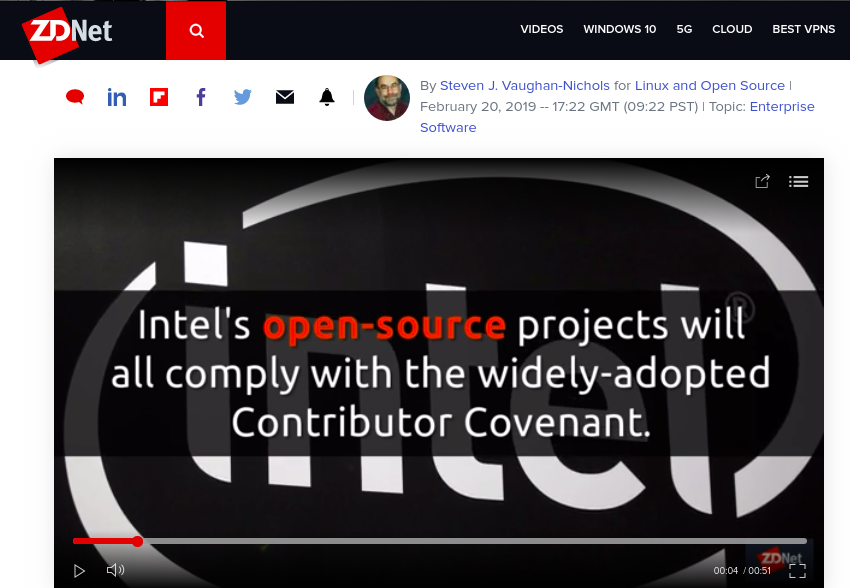
THE corporate press or the mainstream media is not trustworthy because of its ownership. It's not that it's incapable of finding out the truth; it's just that telling the truth, accurately, is oftentimes against its business model (for example, unfavourable to a corporate sponsor).
"When people receive a salary for their writings there are almost always some strings attached (to those who provide this monetary compensation, and not because they charitably support journalism)."Some of the worst publishers have long been named and shamed here. We've been documenting concrete examples for a very long time. We try to show actual evidence that they intentionally mislead the public and highlight who benefits...
There's that old saying, "follow the money..."
When people receive a salary for their writings there are almost always some strings attached (to those who provide this monetary compensation, and not because they charitably support journalism).
As Ryan has just put it, who said "Freedom of the Press goes to the people who can afford one"?
"The people who can afford the press," he adds, "are the advertisers. So they tend to report based on who they think the advertisers can play to."
In this series' short introduction we explained what we're about to show. In Part I, Part II, Part III, and Part IV we've already shown some 'smoking guns' from Intel; the best (or worse/worst) is yet to come.
Putting aside obvious defamation, someone has pointed out to us that "ZDNet [is] incorrect about Intel adoption of CoC..."
Thankfully, as we hoped when we started this series, we are getting additional information from betrayed and disgruntled people, who are happy to see this information about Intel (belatedly aired thanks to whistleblowers).
Of course we welcome any additional input. Techrights is very robust or resistant to censorship in all its subtle forms.
As one person (insider) told us: "I didn't like the push for Microsoft stuff..."
We'll get to more examples of this soon (later in this series). Intel is basically morally defunct and geeks are fed up with it. Their salaries won't change their minds on it...
As Ryan explains this evening: "Microsoft is desperately trying to wake up and pitch Windows again all of a sudden. After a huge multi-year sales slump they think they can sell into the disaster. PCs for people who suddenly need to do everything over the web."
The market share of Windows is rapidly declining. Would Intel attempt to rescue Windows? Throughout the day today (in IRC) many of us decided that YES! Intel would definitely like the Wintel monopoly/duopoly back 'in order'...
"A little info," said a source to us, concerns various events of interest inside Intel (not that the media properly covered any of this, if at all!). "The Open Source Community manager, Jeff Osier Mixon, left Intel for the Linux Foundation," said our source. "Then, Stefano Cetola (open hardware) left Intel and joined the Linux Foundation. The same week Jeff left... ZDNet reported about Intel adopting the Contributor Covenant. As reported here in "The battle between real open source vs. faux open source heats up".
ZDNet is a sister site of CNET, as noted in the video above, and it's (or was) owned by the now-defunct CBS.
"Not Correct," our source said about this article from "Steven" (SJVN). "The video starts as (the below screenshot/image)," the source has shown to us.

It says: "Intel's open source projects will all comply to the widely-adopted Contributor Covenant."
We had it affirmed to us that this is definitely false, based on people high up at Intel itself. The above may be applicable "for the Open Source Technology Center but not entirely for Intel," we've learned from informed individuals. "Project choice" is what they call it. "This came from the lawyer dealing with open source project licenses etc."
"The Open Source Technology Center is separate from other groups," we were told, "like IOT and AI."
"The report about the adoption of the Contributor Covenant for all Open Source projects is highly exaggerated," we were further informed. The Contributor Covenant was rejected in some areas. "The leads decided there was no need for a code of conduct," we were told, "at all."
"It's strange that anyone would bother with that," Ryan has said moments ago. "Code of Conduct is just a way to suppress people and debates that are embarrassing or inconvenient. They write them in such wording that they could mean anything. It's like a disorderly conduct statute. The purpose is to "maintain order". Only with the CoCs, it's usually by disappearing someone permanently."
"Of course, there was this blog post about the Open Source Technology Center adopting this," we were told. It was dubbed "disappointing... Maybe SJVN did not understand the scope of the adoption."
The blog states that the Open Source Technology Center "was going with contributor covenant. Just states 'staff'..."
Just a few weeks after the resignation of Imad Sousou ("I’ve decided to leave Intel," he wrote).
"Anyway," concluded our source, it "just shows again the "accuracy in reporting" of SJVN if nothing else..."
The video above speaks of the general track record of ZDNet in 2020. ⬆